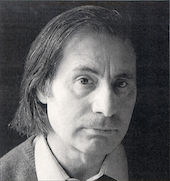
This compilation assembles previously published and unpublished essays by Schnittke and supplements them with an interview with cellist and scholar Alexander Ivashkin. The book is illustrated with musical examples, many of them in Schnittke’s own hand. In A Schnittke Reader, the composer speaks of his life, his works, other composers, performers, and a broad range of topics in 20th-century music. The volume is rounded out with reflections by some of Schnittke’s contemporaries.
This biography of the Russian composer Alfred Schnittke (b.1934) presents a fascinating portrait of a man whose musical output is inextricably linked to the strictures of life in the former Soviet Union. For most of his adult life in Russia Schnittke's music was powerfully shaped by the frustrations of the Soviet period and he reacted strongly against the ideology of the era. His symphonies lie arguably at the end of the Germanic symphonic tradition, yet each represents a new concept of the genre for the twentieth century.
Alfred Schnittke (1934-1998) is commonly considered the most prolific and popular Russian composer of the late twentieth century. In addition to contributing to all major compositional genres, Schnittke was a prolific composer of choral music. A detailed survey of his entire choral output is provided in chapter one. Regardless of his political surroundings, Schnittke found ways of composing sacred music in both Soviet and Post-Soviet Russia, thus his sacred choral works outnumber his secular ones.
Alfred Schnittke (1934-1998) was arguably the most important Russian composer since Shostakovich, and his music has generated a great deal of academic interest in the years since his death. Schnittke Studies provides a variety of perspectives on the composer and his music. The field is currently diverse and vibrant, and this book demonstrates the range of academic approaches being applied to Schnittke’s work and the insights they provide, covering: polystylism, for which Schnittke is best known, the significance of the composer’s Christian faith, and detailed formal analyses of key works, with connections drawn between the apparently divergent periods of the composer’s career.